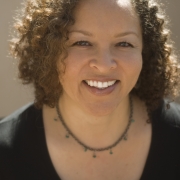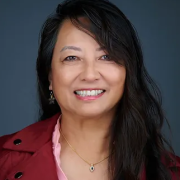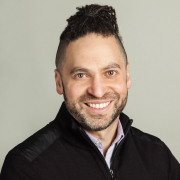BONDS OF BRASS by Emily Skrutskie
I’ve been honored to interview Emily Skrutskie here and here. When I first heard about BONDS OF BRASS, which comes out on April 7, I couldn’t wait to spread word about it:
 A young pilot risks everything to save his best friend–the man he trusts most and might even love–only to learn that he’s secretly the heir to a brutal galactic empire.
A young pilot risks everything to save his best friend–the man he trusts most and might even love–only to learn that he’s secretly the heir to a brutal galactic empire.
Ettian Nassun’s life was shattered when the merciless Umber Empire invaded. He’s spent seven years putting himself back together under its rule, joining an Umber military academy and becoming the best pilot in his class. Even better, he’s met Gal Veres–his exasperating and infuriatingly enticing roommate who’s made the Academy feel like a new home.
But when dozens of classmates spring an assassination plot on Gal, a devastating secret comes to light: Gal is the heir to the Umber Empire. Ettian barely manages to save his best friend and flee the compromised Academy unscathed, rattled both that Gal stands to inherit the empire that broke him and that there are still people willing to fight back against Umber rule. As they piece together a way to deliver Gal safely to his throne, Ettian finds himself torn in half by an impossible choice. Does he save the man who’s won his heart and trust that Gal’s goodness could transform the empire? Or does he throw his lot in with the brewing rebellion and fight to take back what’s rightfully theirs?
In our last interview, you said, “Storytelling is nonstop problem solving all the way down.” Without giving away spoilers, what’s one of the hardest storytelling problems you’ve had to grapple with?
When you write a story that is, at its core, about a relationship between two people, the whole thing turns into a balancing act. In BONDS OF BRASS, Ettian and Gal have been best friends for years, and the story picks up in the moment that profoundly changes that dynamic—the moment Gal reveals himself as heir to the empire that both ruined Ettian’s life and put it back together. One of the hardest problems I had to solve in drafting this book was figuring out how to make that bond click for the reader without falling back on just saying, “They’re best friends.”
“Show, don’t tell” is a common piece of writing advice that gets misinterpreted to death, but the heart of it is that you have to really earn everything you put on the page. If you don’t make whatever it is you’re depicting—in this case, a close friendship between two guys who’ve had each other’s backs for years—feel fully inhabited, your audience won’t connect to it. This can be a really frustrating thing to edit for too, because you’ll get that note that says “I don’t know if I really buy their friendship” and you’ll be like, “But I said!” And sure, you said, but did you say it convincingly enough?
Excellent point, and great tips. I’m also going to try to incorporate your “bonding” advice into a current project I’m working on. BONDS OF BRASS explores dealing with difficult choices. What is a difficult decision you’ve had to make, and what, if anything, came out of it?
One of the hardest choices I’ve made was the decision to drop out of my computer science major with two classes left during my senior year of college. I fought really hard to do it all while I was in school—to study film, which I was passionate about, computer science, which I felt I needed for career prospects, and to write books on the side, like I’d been doing since I was fifteen years old. But in the fall of my senior year, I sold my debut, and I felt myself all of a sudden in the grip of a reckoning. I’d been burning hard—and often burning out—my entire time at Cornell, and I knew with a book deal and the pressure of publishing hanging over me, I couldn’t divide my time and hope to succeed. I had to make a sacrifice. So I chose passion, dropped the CS from a major to two minors, and finished school with a degree in film and a fantastic book on the way.
I can’t say for sure what that lack of a CS degree has done to me, career-wise, but I’m now a pipeline technical director, which is almost exactly what my combination of film and computer science was for. And every day, as an adult with a day job and a night job, I make a less high stakes series of the same choices as I figure out how to balance my time against what’s going to make me happy, what’s going to burn me out, and what’s going to keep food on the table. Making that original decision in college was devastating at the time because it felt like giving up on something I’d fought so hard for, but from the other side of it, I can say for sure that being realistic about my time and the weight I was carrying was the right one, and it’s something I’ve tried to take with me going forward in my career.
Decisions in tough moments can often have positive, long-lasting effects. I’m glad you followed your heart. I also love the cover for BONDS OF BRASS. In what ways does it capture your original vision of the story?
The illustration Merilliza Chan is just perfect. It immediately tells you everything the book’s about, from the lovely renderings of Ettian and Gal to the expressions on their faces (Ettian’s wry look, Gal’s wistful stare into the distance) to the fact that there’s a ship plunging a line between them as if to represent the fracture in their bond that serves as the catalyst for the entire story. It’s colorful, energetic, and youthful, which is exactly what we want to communicate to readers when they pick the book up.
Ooh, I love the symbolism. What has been the most encouraging part of your publishing journey?
The most encouraging part of my publishing journey is, somewhat tautologically, that it isn’t over yet. I’ve definitely had dark moments, from having my second book canceled to being on sub for about a year, but all of those dark moments have passed or worked out in surprising ways. My old publisher was bought by a new one and suddenly the canceled second book, The Edge of the Abyss, was fast-tracked to be their first major launch. After a year of YA publisher rejections, we submitted BONDS OF BRASS to adult imprints and got snapped up immediately. It’s been six years since my first sale, and I’m now in a place where I have faith that if I keep my head down, put the work in, and don’t get too hung up on the day to day, things will all work out in the end, and I’ll get to keep telling the stories I love.
![]() Buy: BookPassage ~ Amazon.com ~ Barnes & Noble ~ IndieBound
Buy: BookPassage ~ Amazon.com ~ Barnes & Noble ~ IndieBound
Buy: BookPassage ~ Amazon.com ~ Barnes & Noble ~ IndieBound
Buy: BookPassage ~ Amazon.com ~ Barnes & Noble ~ IndieBound
Buy: BookPassage ~ Amazon.com ~ Barnes & Noble ~ IndieBound













Leave a Reply
Want to join the discussion?Feel free to contribute!